Personal Statement
I am a geriatric psychiatrist and health services researcher. My research focuses on ways of improving mental health and well-being among older adults, especially those with dementia and their caregivers.
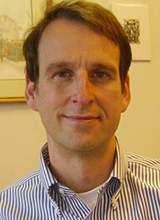
I am a geriatric psychiatrist and health services researcher. My research focuses on ways of improving mental health and well-being among older adults, especially those with dementia and their caregivers.
My work focuses on education and training in the areas of suicide prevention and suicide care. Particular interests include supporting clinicians who have experienced the loss of a patient to suicide and building knowledge among health care professionals about cultural aspects of firearm ownership and use.
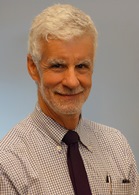
My clinical service and research focuses on the interaction of mental and physical illness, especially in patients with chronic pain. Much of my research in recent decades has focused on the risks of treating chronic pain with opioids. I have developed educational programs and outcome tracking tools to assist with opioid treatment of chronic pain. I have published a book about patient empowerment in chronic disease care, The Patient as Agent of Health and Health Care (Oxford, 2017). I have another book written with Jane Ballantyne forthcoming, The Right to Pain Relief and other deep roots of the opioid epidemic (Oxford, 2022).

I am interested in methods of evidence translation and knowledge exchange that improve system and policymaking in behavioral health with a focal interest in public mental health for children and juvenile justice system reform.
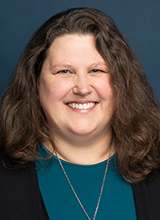
Personal Statement
My career goal is to give suicidal clients and their clinicians the best chance to succeed. I have been working in the area of health services, treatment development, and clinical trials research to prevent suicide for over 20 years. My graduate training was in community/clinical psychology and focused on achieving clinical ends through prevention and other systemic interventions in socio-culturally diverse populations. I have brought these perspectives into health services research. I have developed or adapted interventions to improve care and clinician willingness to work with suicidal patients including Caring Contacts, Dialectical Behavior Therapy (DBT), Collaborative Assessment and Management of Suicidality (CAMS), and Preventing Addiction Related Suicide (PARS). I have developed an adaptation of DBT, Accepting the Challenges of Employment and Self-Sufficiency (DBT-ACES), a program to assist psychiatrically disabled individuals find and maintain living wage employment. My research has been funded by NIMH, NIDA, the Department of Defense, American Foundation for Suicide Prevention, the Department of Veteran Health Affairs, and the State of Washington.
I am the director of the Center for Suicide Prevention and Recovery (CSPAR) whose mission is to promote the recovery of suicidal individuals and the effectiveness and well-being the clinicians and families who care for them by conducting rigorous and ecologically valid research, developing innovative interventions, improving policies, systems and environments of care, and providing expert training and consultation. CSPAR faculty and staff seek a deep understanding of the cultures and settings in which we work that leads to meaningful and effective interventions ready for implementation.
In addition to clinical research, I founded the Society for Implementation Research Collaboration (SIRC) and am the PI and Director of the Military Suicide Research Consortium Dissemination and Implementation core. These organizations focus on disseminating and implementing innovative, evidence-based interventions in the systems that need them. Beyond my research, I directed the Harborview Dialectical Behavior Therapy program at Harborview Medical Center 1996-2019, co-lead the UW DBT Training Program and have a long history of training and mentoring junior faculty, fellows, psychiatry residents, pre-doctoral psychology interns, undergraduate students, and post-baccalaureate trainees. I provide psychotherapy and consultation at the UWMC Outpatient Psychiatry Clinic.
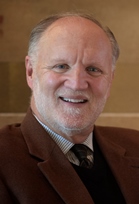
| I am a Seattle native who has spent my entire academic career at the University of Washington School of Medicine. I joined the faculty of the UW Department of Psychiatry and Behavioral Sciences in 1977 and was based at the Seattle VA Puget Sound Health Care System. I joined the Seattle-American Lake Geriatric Research, Education and Clinical Center (GRECC) in 1977 as a clinical investigator and later served as GRECC Director from 1987-1998. In 1998, I was appointed Chair of the Department of Psychiatry and Behavioral Sciences and held this position until February, 2014. I am certified by the American Board of Psychiatry and Neurology with Added Qualifications in Geriatric Psychiatry and am listed in America’s Top Doctors and Best Doctors in America. I am recipient of the 2005 American Academy of Child & Adolescent Psychiatry, Robert Cancro Academic Leadership Award: Best Chair. I have conducted extensive research on the treatment of depression in patients with heart disease and stroke and has published more than 140 scientific publications. I am active in community efforts to improve the quality of care for the seriously mentally ill and with my faculty colleagues am implementing regionally, nationally, and internationally innovative and highly effective models of care that integrate mental health care into primary care settings. I am working with medical schools and the health ministries in Vietnam and Cambodia to strengthen psychiatric education, expand the mental health workforce, and develop delivery systems for psychiatric care in those countries. |
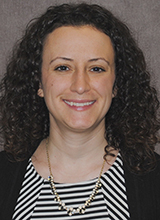
I am a psychiatrist at the UW Outpatient Psychiatry Clinic (OPC) on Roosevelt, where I see patients for consultation, medication management, and psychotherapy, both individually and with psychiatry residents. I see patients with mood disorders, anxiety disorders, trauma, and complex trauma. I also help answer a consultation line for providers in the state of Washington who have questions about psychiatric medications during the perinatal period. I serve as an Associate Program Director in the Psychiatry residency, where I help oversee the curriculum. My areas of interests are resident education, psychodynamic psychotherapy, outpatient psychiatry, perinatal psychiatry, and diversity, equity, and inclusion.

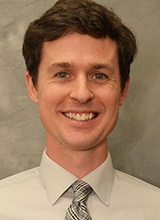
I am a board-certified Consult-Liaison psychiatrist at UW Medical Center – Montlake and the General Internal Medicine Clinic, as well as a Clinical Associate Professor in the Department of Psychiatry and Behavioral Sciences.
When working with patients, my goal is to understand their life history and personalities in addition to their medical and psychiatric conditions. I am also involved in teaching UW medical students as well as practicing mental health providers across the state.
I earned my M.D. from the University of Florida, Gainesville, then completed residency at the University of Michigan and a fellowship at Northwestern University. My interests include treatment of psychiatric conditions in medically ill patients, collaborative care, quality improvement, delirium, and medical education.